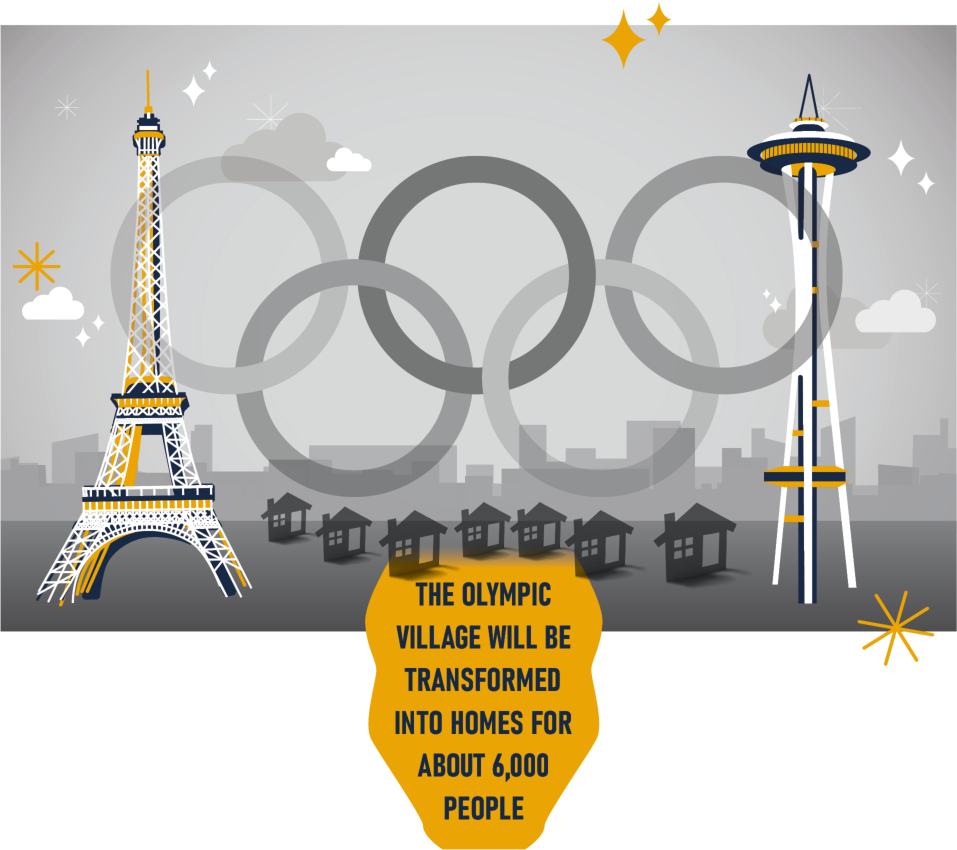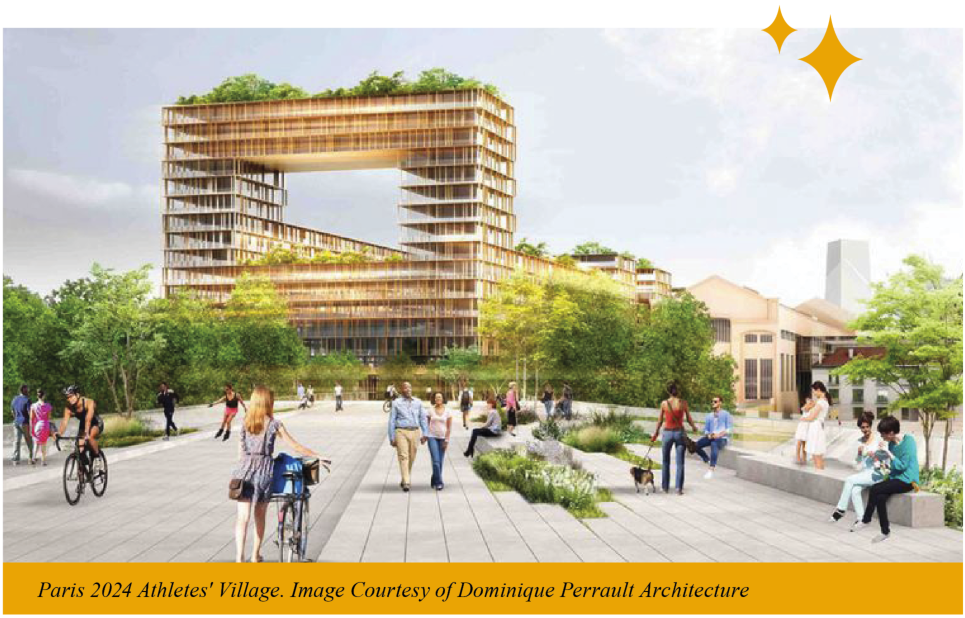Will Social Housing Work in Seattle? Watch the Paris 2024 Olympics to Find Out
 On February 6, 2024, Seattle Social Housing advocates filed an initiative campaign with the City of Seattle seeking a new 5% marginal payroll tax on corporations with employees who earn more than $1 million per year. Employers would pay the social housing tax, not employees.
On February 6, 2024, Seattle Social Housing advocates filed an initiative campaign with the City of Seattle seeking a new 5% marginal payroll tax on corporations with employees who earn more than $1 million per year. Employers would pay the social housing tax, not employees.
Referred to as Initiative 137 (I-137) and sponsored by a group called House Our Neighbors which estimates the new social housing tax would generate approximately $52 million a year. The proposal would use these tax dollars to acquire roughly 2,000 units of existing or newly constructed homes over the next 10 years.
I-137 is a follow-up to Initiative 135 (I-135) which was approved by Seattle voters on the February 14, 2023 Special Election ballot. It was the only Seattle measure on the special election ballot and supported by 57% of the voters who turned out. Just 33.17% of Seattle voters cast their ballot in the election.
I-135, among other things, created a new government agency with bonding authority with no independently elected officials and with limited oversight. It didn’t include a funding mechanism but rather directed the City of Seattle to provide initial start-up money.
This new Seattle Social Housing Developer consists of 13 members, seven of which are appointed by the Seattle Renters’ Commission. There are also two appointed by the Seattle City Council, one by the Mayor, one by the New Green Deal Oversight Board, with the King County Labor Council and El Centro de La Raza also getting one appointment each. No real estate or housing development experience is required.
House Our Neighbors hopes to gather 35,000 initiative signatures by the end of June to be considered on the November 2024 general election ballot. As of April 1, 2024, the campaign raised $121,709 with expenditures and debt of $78,117 leaving a balance of $43,591 according to House Our Neighbors financial disclosures filed with the Seattle Ethics and Elections Commission.

What does this have to do with the 2024 Paris Olympics?
Paris, France, is one of the most storied and iconic cities in modern civilization and the host of the 2024 Summer Olympics, between Friday, July 26, 2024, and Sunday, August 11, 2024. During this 30th presentation of the summer Olympic Flame, organizers are planning to house approximately 14,500 athletes from around the world who will participate in the event.
For the athletes who are participating, Paris has built an Olympic Village spanning parts of three cities: Saint-Denis, Saint Quen and L’lle-Saint-Denis, near many of the venues and with views of the Eiffel Tower and the River Seine.
Once the games are over, the Olympic Village will be transformed into homes for about 6,000 people with a significant portion dedicated to social housing.
This is not Paris’s first foray into social housing. But it is new to Seattle.
What is Social Housing and I-135?
Simply put, according to the House Our Neighbors website, Seattle’s Social Housing Initiative 135 says that in every building the Seattle Social Housing Developer acquires, units would be divided among different income brackets, ranging from 0% to 120% of the area’s median income and done in a way that no one would be charged more than 30% of what they earn.
If this is divided among income brackets correctly, organizers say, each building would earn enough in rent to make it self-sustaining.
“The grand vision of social housing in Seattle is to replicate Vienna, Austria, Paris 2024 Athletes' Village. Image Courtesy of Dominique Perrault Architecture and create a rental market dominated by government-owned apartments.”, reported by Seattle Times’ reporter Anna Patrick over a year ago. “Proponents of social housing say the ultimate goal is to remove more housing from the private sector and place it under governments or a public authority’s control”.
There has been some skepticism raised about this approach.
In Paris, one-quarter of residents live in public housing, up from 13% in the 1990s, and has built or renovated over 82,000 units over the last three decades for families and children. Rents range from six to 13 euros a square foot, depending on household income, meaning that a 2-bedroom 1,000 square foot apartment could go for as little as 600 euros (€650) per month according to a March 17, 2024, New York Times article by staff writer Thomas Fuller. Some newly constructed units for students are reported to be as low as 250 euros a month. Paris also budgets hundreds of millions of euros a year for their social housing program and has a population of 2.1 million compared to Seattle’s 760,000.
Obviously, the politics, history and size of Seattle and Paris have little comparison – even though our weather is similar - but is interesting to see what other great cities have done.
If the proponents of I-135 are successful in gathering their 35,000 signatures by summer, then paying a little extra attention to the Paris Olympics and their athletic village between sporting events might be worthwhile.

